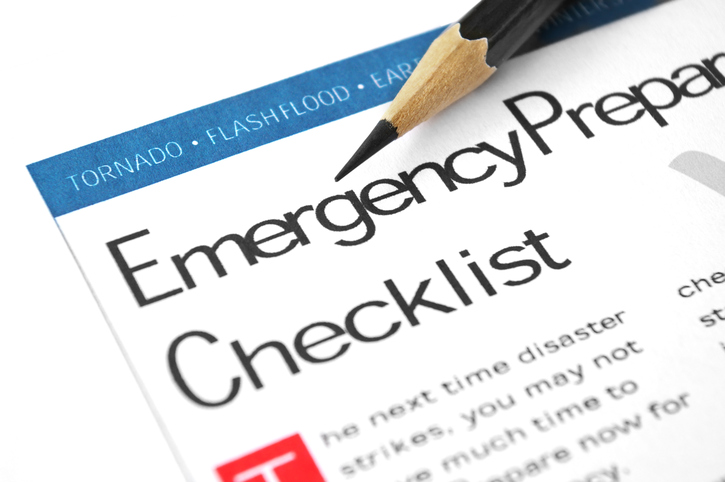Disasters—both natural and man-made—can bring great loss and destruction, but are inevitable and unpredictable. Each year, we witness deadly earthquakes, hurricanes, floods, wildfires, accidents, and mass shootings.
Dating back to the Galveston Hurricane in 1900, Johnson & Johnson has demonstrated its unwavering commitment to disaster relief. Support continued during the San Francisco earthquake of 1906 through to recent disasters, like Hurricane Harvey and Hurricane Maria. Today, guided by Our Credo, which states that the company must be “responsible to the communities in which we live and work and to the world community as well,” the company alongside our partner organizations continue to focus on responding and rebuilding in the wake of disasters across six continents. Our strong, longstanding partnerships give proof that banding together with others, uniting under a common purpose, sharing knowledge, and combining reach can bring results, as detailed every year in our Health for Humanity report. This report also highlights our Campaign for Nursing’s Future initiative.
At Johnson & Johnson, we recognize that nurses have a unique and critical responsibility when disaster strikes. They provide vital medical aid, comfort, and leadership during times of confusion, fear, loss, and suffering. Often, they face uncomfortable and dangerous conditions, with risk to themselves, limited resources, and very little sleep.
Although disasters usually follow a similar sequence of prevention, preparedness, response, and recovery, no two disasters are exactly the same. Nurses need different knowledge, a new set of skills, and diverse experience to respond to a hurricane, disease outbreak, or a transportation accident. As the backbone of disaster response, nurses must learn how to solve problems quickly, rapidly direct groups of people, prioritize needs, and allocate inadequate supplies.
Johnson & Johnson is helping to equip nurses with the skills to respond by partnering with organizations that train and mobilize disaster nurses. For example, Johnson & Johnson supports the TOMODACHI Disaster Nursing Training Program, which aims to deepen the professional knowledge of nursing students specializing in disaster medicine and nursing in Tohoku, Japan.
Born out of support for Japan’s recovery from the Great East Japan Earthquake and Tsunami in 2011, Johnson & Johnson is partnering with the U.S.-Japan Council to develop a seven-month Disaster Nursing Training Program. As part of the initiative’s cultural exchange, participants from Japan visit the U.S. to visit facilities specializing in disaster response and meet with U.S.-based experts who helped during and after 9/11 and Hurricane Sandy.
Many participants were personally impacted by the Great East Japan Earthquake—and became nurses as a result. Yumi Gima, a participant in 2018, said: “I experienced the Great East Japan Earthquake during my first year of middle school. At the time, there was no water in the area where I lived, and when I saw seniors volunteering to collect water, I became inspired to volunteer and help others. However, I could not take any real action at the time.
“I became interested in disaster nursing due to my experience during the earthquake—it is why I applied to this program. In recent years, a variety of disasters have taken place in Japan due to extreme weather. During the study tour in the U.S., I’ve learned about disaster response measures not only for earthquakes, but also for hurricanes and other disasters that cannot be easily studied in Japan. In the future, I would like to become a member of a disaster medical assistance team (DMAT) and be able to take positive action in times of disasters.”
In addition to developing disaster nursing skills, participants like Yumi share their memories of the Great East Japan Earthquake and Tsunami, while demonstrating their compassion for strangers. They interact with a multilingual and multiracial society, uncommon in Japan, and learn the importance of understanding and respecting other cultures, backgrounds, and ways of thinking to foster a global perspective not only as health providers, but also as human beings.
September is National Preparedness Month and programs like the TOMODACHI Disaster Nursing Training Program are critical for preparing frontline responders for the unpredictable. Johnson & Johnson appreciates that the need to care for, comfort, and advocate for patients comes naturally to nurses—even when their own health could be at risk. This compassion makes them vital during this time of unprecedented disasters and supporting their knowledge, skills, and abilities through training is imperative to help them mobilize and respond faster and, ultimately, save lives.
- Equipping Nurses with Disaster Skills is Critical to Prepare for the Unpredictable - September 21, 2018



